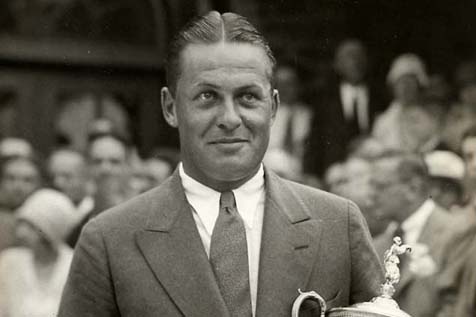
FORTY years ago, the term “amateur” was a compliment (playing sport for the love of it) and the term “professional” was a criticism (taking the sport too seriously), but now, they have changed meaning — to be termed an amateur is to suggest we do sport poorly while being described as professional underlines we put everything into it, going beyond the extra mile.
By Tim Middleton
With the change in meaning has come a change in standards, as “professional” now implies we do whatever we have, and can, to win, at all costs. But with sport playing an important part in education as well as in life, the desire has increased to make school sport more professional even to point of paying players (into Trust funds) and adopting all that it takes to win. As a result, we have lost all sense of values, especially integrity.
Integrity really simply means doing the right thing right, in the same way that we must do sport well, not do well in sport. It is not a matter of the end justifying the means. CS Lewis once said that “integrity is doing the right thing, even when no one is watching”. Oprah Winfrey echoed this view when she said: “Real integrity is doing the right thing, knowing that nobody’s going to know whether you did it or not.”
Thomas Monson added another dimension when he said: “Perhaps the surest test of an individual’s integrity is his refusal to do or say anything that would damage his self-respect.” That must start on the sports field at schools and must apply to life.
Integrity, firstly, involves honesty. Golf has provided examples of professional players admitting when they have signed for the wrong score, or have carried too many clubs, no matter the importance of the competition.
Bobby Jones, one of the world’s greatest golfers, penalised himself in the 1925 US Open Golf Championship as he was sure his ball had moved — it meant he lost the title. Many people praised him for doing so yet his response was simple: “You might as well praise me for not robbing a bank.” He did what was right without hesitation or question. But we need to understand what James Faust was saying when he said: “Honesty is more than not lying. It is truth telling, truth speaking, truth living, and truth loving.” In cricket, when we know we are out, we walk; in soccer, it means no diving, faking injury or appealing. Dishonesty is cheating and cheating is stealing.
Integrity is not simply being honest though; it is also about showing honour. Jack Nicklaus, another of the world’s greatest golfers, famously “gave” his rival, Tony Jacklin, a three-foot putt on the final green of an evenly-balanced Ryder Cup, to tie the match and the whole competition, saying afterwards: “I don’t think you would have missed that putt, but in these circumstances I would never give you the opportunity.” Doing the right thing right was more important than winning. Another golfer, Lee Westwood, has made an important observation: “You don’t see us missing a putt and diving. I don’t think there is a place for cheating in golf, or sport, for that matter.”
- Chamisa under fire over US$120K donation
- Mavhunga puts DeMbare into Chibuku quarterfinals
- Pension funds bet on Cabora Bassa oilfields
- Councils defy govt fire tender directive
Keep Reading
Westwood could easily also have added “or in life” after these words. Sport is a mirror of life – there is not one law for sport and one for life. Grantland Rice observed: “Eighteen holes of match play will teach you more about your foe than eighteen years of dealing with him across a desk.” If we cheat in sport, we are likely to cheat in other areas. If we cheat, then everyone can cheat. If we cheat, we breed mistrust. If we cheat, we will cheapen our own character. Abraham Lincoln explained: “I am not bound to win, but I am bound to be true.”
We may point out that there is not a lot of integrity in professional sport – but that is because we in schools have not stopped it or spoken out against it. Now is the time for schools to change that. Someone has said: “A person is not given integrity. It results from the relentless pursuit of honesty at all times.” We need to help our young people attain integrity more than ever before. Sportspeople are desperate to achieve greatness yet Charles Simmons identifies that “Integrity is the first step to true greatness.”
The legendary Mahatma Gandhi once famously said: “There are seven things that will destroy us: Wealth without work; Pleasure without conscience; Knowledge without character; Religion without sacrifice; Politics without principle; Science without humanity; Business without ethics.” We can easily add an eighth: Sport without integrity. So, as Marcus Aurelius said long ago: “Waste no more time arguing about what a good man should be. Be one.” On the sports field and off it, starting at school, now — otherwise we will be destroyed.
l The writer, Tim Middleton, is a former international hockey player and headmaster, currently serving as the Executive Director of the Association of Trust Schools (ATS)]
Email: [email protected]











